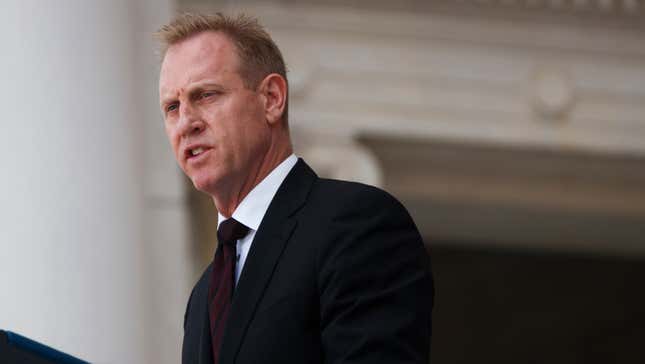

On Tuesday, President Trump announced that Patrick Shanahan, a retired Boeing executive and the current acting secretary of defense, was withdrawing his nomination to take on the role in an official capacity. As the president told reporters, Shanahan was withdrawing in order to “take some time off for family matters.” This was something of a euphemism, and a familiar one. As a Washington Post investigation had revealed just prior to the announcement, the “family matters” Shanahan needed to attend to were considerably darker than the president suggested: namely, two violent domestic incidents that had been uncovered by the FBI though reportedly concealed from lawmakers.
“I didn’t ask him to withdraw. He walked in this morning,” Trump
told reporters on the White House lawn late Tuesday afternoon. “We have a very good vetting process,” he added.
Until his resignation, Shanahan had been the longest-serving acting defense secretary. Confirmed in a temporary capacity in late 2017, he was nominated to fill James Mattis’s former position—the highest civilian position in the Pentagon—in March of 2019. Shanahan’s domestic history was apparently not mentioned in his 2017 confirmation hearing, either.
This has become a pattern: Last year, White House Chief Strategist Rob Porter resigned following multiple allegations of spousal abuse. (Prior to his resignation, the administration fought hard to keep him in place, defending him as a good man even as both of Porter’s ex-wives described a history of violent abuse.) Andrew Puzder withdrew his nomination for secretary of labor after a video of his ex-wife, Lisa Fierstein, appearing on a ‘90s episode of Oprah called “High Class Battered Wives” surfaced. Clearly, the “vetting” process isn’t working.
-

-

-

-

-

-

-

-

-

-

-

-

-

-

-

-

-

-

-

-

-

-

-

-

-

-

-

-

-

-

-

-

-

-

-

-

-

-

-

-








































